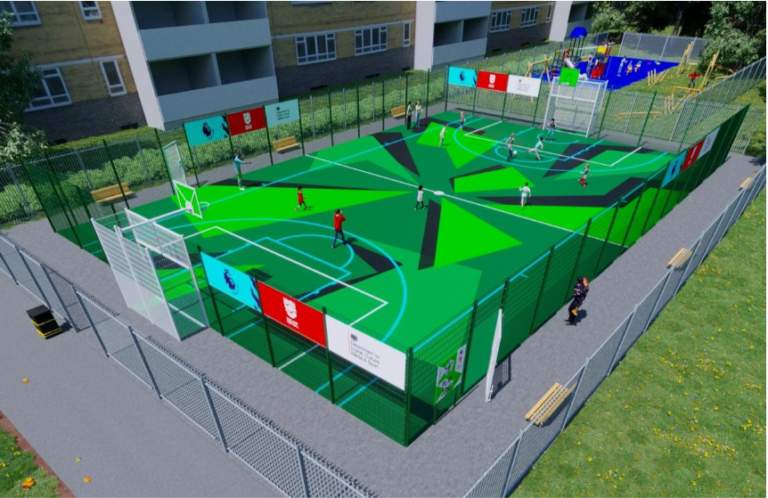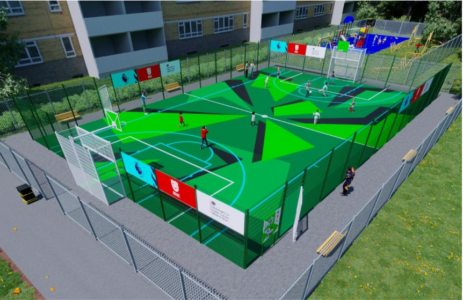London Sport’s Active LDN conference took place on October 17 at Decathlon to discuss “Active Solutions to London Challenges”. A few weeks on from the event, our Head of Insight Daniel Stracey reflects on one of the event sessions: “From Consultation to Co-Production”.
Following the launch of our Let’s Move London Manifesto, a London Sport document highlighting Mayoral policy asks to tackle inactivity, our morning keynote panel considered what is working to improve diversity and inclusion in the world of grassroot sports in the wake of the ICEC Cricket Discrimination Report. The EDI focus was a first for London sport and particularly exciting for me having developed the session together with my former colleague Dr Marie-Claude Gervais.
Later that afternoon I join a further panel session reflecting on best practice methods of community engagement hosted by my colleague Jolyon Whaymand, Community Engagement Lead at London Sport. Again, of particular interest owing to my background and experience in community consultation and co-creation as an Insight professional. Here are my key reflections from the session.
About the session
Joined by Sport England, the Football Foundation, Basketball England, Lambeth Council and Hackney Quest, the panel shared learnings from the PlayZones programme – developing multi-sport facilities across London, commonly abbreviated to MUGAs and typically found in parks and housing estates (illustration below), through effective community engagement.
In line with Sport England’s Uniting the Movement Strategy the PlayZones programme focusses on engaging groups that face the greatest inequalities when it comes to accessing physical activity opportunities – people from ethnically diverse communities, lower socioeconomic groups, women and girls, disabled people and people with long-term health conditions.
The PlayZones programme has initiated the development of London borough-base consortia across the city. The purpose of these is to ensure that opportunities are co-created with the people and groups that they are designed to reach. The ultimate purpose of the programme is to increase the number of safe, inclusive and welcoming facilities and make them available for everyone.
Understanding local context and sharing decision-making was a central theme of the discussion, to ensure long term sustainable solutions and better outcomes for all.
Key Learnings
#1: Moving at the speed of trust
Independent Consultant Helen Firminger highlighted the importance of doing things with rather than to, noting the importance of relationship building and tapping into existing community networks. During recent work with refugees, local presence was first established with several in-person visits to develop the necessary rapport to achieve good quality feedback. This enabled Helen to surface practical solutions to barriers identified e.g. working with local shop owners to welcome PlayZone users and help top up their drinking water – due to a lack of water fountains and also to help overcome barriers linked to cost.
#2 From consultation to engagement – distribution of power, working together towards more equal partnerships and keeping communication channels open
Co-production, co-design, co-creation – definitions can differ, but all involve an element of consultation. Unlike consultation which has a defined beginning and end with time constraints that may exclude some people, community engagement places emphasis on keeping conversation channels open. As Simon Harris, Leisure Services Development Manager at Lambeth Council highlights, sustained dialogue through various channels is critical to success.
Historically, with large programs, decision-making has to be informed by consultation with target user groups. With PlayZones borough-based consortia have been established to help ensure that community voices are being listened to and heard, also to develop more of an equal partnership when it comes to planning and decision making and sustain ongoing conversations. As Darnelle Morgan-Johnson, Vice-Chair from Active Lambeth Sports Board emphasises, projects are most effective when a balance of power exists between funders, consortia and local community groups.
Luke Billingham, Youth and Community Officer at Hackney Quest discusses how it is vital to avoid being overly prescriptive with community engagement and consultation plans, warning against the application of ‘identikit’ copy paste methods of query to avoid cynicism and consequent disengagement. Again, emphasis is placed on respecting community group representatives as partners, keeping plans and efforts community-shaped or community-led where possible.
#3 Commitment to supporting intended user groups and transfer of ownership
Luke at Hackney Quest highlights the issue of unintentionally exacerbating gentrification when developing facilities. Freshly developed spaces are often hugely popular during the weeks of launch, but are they being used by their intended users? Are they inclusive and welcoming to different groups including people that are typically less active, or do they feel exclusionary? Is this a function of the space itself, the activities taking place, or other factors? Here we must remain constantly curious and consider potential for further outreach and community engagement.
With a variety of MUGAs to consider in various boroughs and neighbourhoods across the city, each presenting unique opportunities and potential barriers to consider, localised efforts and place-based development principles are key to connect with community stakeholders and define the local community activity offer and ‘ecosystem’. This includes developing an understanding of the perceptions of ‘ownership’ amongst varying site users and groups – partly to ensure support but also to help achieve an effective long-standing community solution. As noted by Helen, beyond consideration around activities to ensure that they are appealing and relevant, this can include identifying and working with local volunteer groups to help keep spaces looking attractive and clean.
We hope you have found this useful. For further information check out the following resources:
For more about the Football Foundation PlayZones Programme see: https://footballfoundation.org.uk/playzones-programme
For more about Hackney Quests work on MUGAs and the value and role they can play for people in deprived areas, together with research on barriers and enablers to use, see: https://www.hackneyquest.org.uk/blog/the-difference-a-muga-can-make
For resources to help undertake community consultations more effectively, including interviews and consultations with youths and people with disabilities, see the Youth Sport Trust Youth Voice Toolkit and Activity Alliances extensive resource pages:
https://www.youthsporttrust.org/resources/inclusion/inclusion-2020-youth-voice-toolkit
https://www.activityalliance.org.uk/how-we-help/resources


